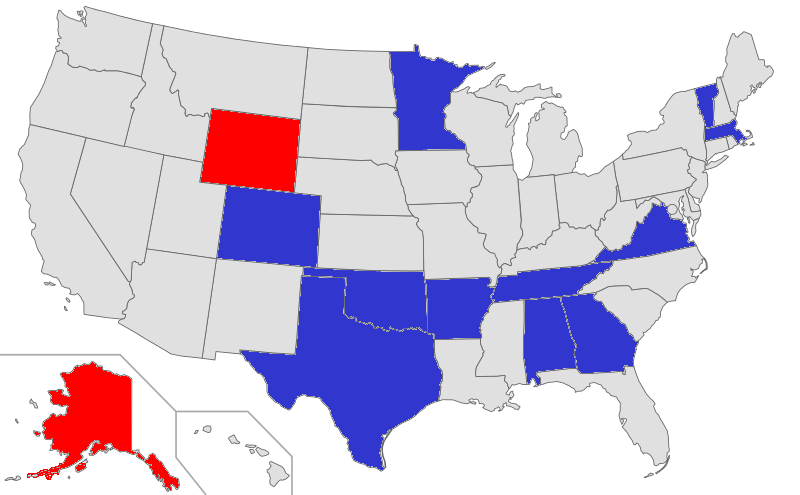“I am not a member of any organized party — I am a Democrat,” comedian Will Rogers spoke these words almost a century ago. Back then it was a tongue-in-cheek good natured ribbing of a party that had just come out of a convention that required 103 ballots to nominate a presidential candidate. Yes, you read that right. In 1924, the delegates to the Democratic National Convention had to vote 103 times to nominate a man who would end up losing in a landslide to Calvin Coolidge. At least the Democratic Party of that era could contain its chaos to one gathering every four years. Today, the party’s disarray is on display 24/7. It is disorganized at every level of government and jurisdiction, at least where it can manage to get elected at all.
I know. Out of the Democrats’ recent defeat, a thousand think pieces have bloomed. Yet, most of them seem to ignore the essential issue Mr. Rogers' diagnosed a hundred years ago. They would rather focus on that nebulous term “messaging.” Among other issues with this analysis, it makes one crucial mistake: it assumes the Democrats have some secret message that they keep failing to deliver. They are otherwise unified and organized and at the same time forgetful of what needs to be expressed. If only the Democrats could just put the right words together, the America people would fall over themselves to vote for any name with a donkey next to it. Extending this logic further, maybe the Democratic Party can make a game of it, sending every American a decoder pin so they can figure out the “messaging” of the next election cycle like Ralphie in A Christmas Story.
All of these postmortems focus on messaging because it is convenient for the people posting them with their bylines attached. It requires no deeper reckoning with what the last two hundred years of the Democratic Party’s disorganization has led to in the present. They are also in line with the class interests of those who write them. On a personal level each one of these authors is hoping that their specific diagnosis will pique the interest of the party so they can get a gig consulting for it. Beyond that, on a more philosophical level, it helps to justify their whole line of work. Since they make a living trafficking in words, they have every incentive to promote the idea that a political party’s fortunes are tied to matters of vocabulary.
But the problem cannot be reduced to messaging while the party is such a mess of contradictions. We have seen that anything promised by one wing of the party, gets shot down by another. Or the so-called Parliamentarian gets to reject this and that proposal (you remember voting for them, right?) The Democratic Party has too many competing factions whose interests cannot be fundamentally reconciled. It is the party of billionaires and unions, landlords and renters, peaceniks and neocons, tree huggers and frackers, Zionists and Muslims, Black Lives Matter and Blue Lives Matter More. In short, the Democrats are trying to serve both Mammon and the masses and failing at both. Any attempt to salvage the Democrats has to begin with meeting this problem head on.
Of course, contradiction is nothing new in the Democratic Party. At certain times the party managed it for a generation or so. They did it after Jackson and then after FDR. But these partisan constellations were only able to do this for two critical reasons. First was the opening of new economic frontiers that allowed competing groups to get a cut of a growing pie. Second was the lack a national issue that could divide the coalition. Eventually both of these advantages ended and the Democrats fell apart. In the case of Jackson's Democrats, they were undone by the very national issue of slavery. For Roosevelt Democrats, their coalition collapsed from the pressures of confronting racism and war in Vietnam.
It seems unlikely that the Democrats will find themselves in such a fortunate position again. The era of free real estate is over and the era of free refills is coming to a close as well. As for national controversies, the Democratic Party can no longer sidestep these. Politics in America have become homogenized thanks to TV and the Internet. Take, for example, People running for school boards. They are no longer focused on the picayune details of lunches and bus routes. They run on the red meat buffet of culture war issues such as transgender rights and so-called historical revisionism.
For the Democratic Party to win in these conditions, it has to reinvent itself. It has to become a party that either Will Rogers or his present incarnations cannot make fun of for a lack of unity. Think about it this way: if the Democrats were a serious party with long term goals, Trump's people would have been running their own version of ads warning about a "Democrat Project 2025." Or 2029. But of course, they did not. And will not. This is but one small piece of evidence the alleged party of the people needs to reorient itself in order to fight the rightward lurch of the country. Because what is at stake is more important than which gang of politicos holds office. The installation of a complete oligarchy is at hand.
Unfortunately voters have been presented with few choices to stop this. The Republicans are the party that will make this transformation happen on purpose. Meanwhile the Democrats of the current cycle have become the party that will let it happen. Whether on purpose or not, the effect is the same. What kind of Democratic Party (or any party for that matter) would be better suited for the challenge of the day? The answer is predictable if you know me, but I do not care. The best version of the Democratic Party is one that has a solid base in the multiracial working class and is built around their representative organizations. While there will disagreements here and there in this model, at least this party will not be haphazardly built on top of known and active political fault lines.
Now for my most controversial drop. The historical and current iteration of this Democratic Party, amounts to little more than a rent seeking entity. It is run by a consulting class that inserts itself between activist groups and the avenues of power. Those who want to improve conditions for labor, minorities, women, or the environment have to go to this party, hat in hand, and beg for them for promises of change. As a result, those who run the current donkey show demand increasing contributions of cash, political labor, and votes when a simple majority is claimed to be not enough.
It is helpful to compare the trajectory of the Democrats with the Republican Party, a party that fears its activists and works aggressively from election to election to enact its agenda. Whether they win or not is not the immediate issue. Commentators have rightly noticed the aggressively ideological character of today's GOP, though what they fail to remember is that the party was created as an explicitly ideological project. Of course that free soil, free labor, and free men ideology is in no longer in force among Republicans. Nevertheless, there was a clear political objective at one point and it echoes through to the present day. Today's Republicans have learned from that era. They have a party setup to deliver specific results.
Know this. Unlike the Democrats, the Republicans can point to a specific time and place (1854 Ripon, Wisconsin) when their party was established. They can also explain what led to this event, the passage of the Kansas-Nebraska Act. But what do Democrats have? A party built on various patronage networks, unifying urban sachems and rural courthouse gangs. It is a party that was founded by Jefferson, or Burr, or maybe Andrew Jackson, or quite possibly Martin Van Buren. It was not even consistently called the Democratic Party during all the times of its apparent founding.
The Democrats of that era, the Democrats of Will Rogers' day, and Democrats of today have tried to pretend their messy big tent approach to politics is a secret strength that allows everyone to somehow feel represented. It should be increasingly evident this is not working. Creating a big tent in American politics ultimately leads to a sideshow, with figures like Manchin and Sinema gumming up the works. A real party with actual aims would be able to discipline these prima donna types, or better yet make sure they did not feel at home in the Democratic Party to begin with.
As it stands, the Democrats are awakening to see themselves restricted to coastal enclaves, a handful of cities in the interior, and the Black Belt in the South. Former strongholds in the Rio Grande Valley are going red, along with the rural upper Midwest. Appalachia is completely gone and if the Democrats are not careful they might start losing New Jersey in presidential and senatorial races. In the face of these changes, a complete structural reorientation is needed. The party needs to become a new kind of machine that is controlled by working class organizations, mobilizing working class voters across race and gender, to delivers real change to all working class Americans.
Or the Democrats can continue on their current path. It is certainly easier emailed than done. Crying wolf to fundraise and waiting for the Republicans to screw up so much that it puts the Democrats back into power. Unfortunately this time around, if they continue with this approach they may find themselves joining the Whigs and Antimasons in the graveyard of American politics. Who knows what else they will take down with them when this comes to pass. Maybe a little Free Soil will be there to help ease the journey with Henry Clay Charon.








